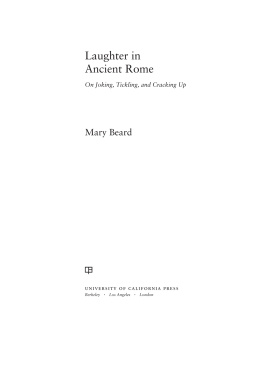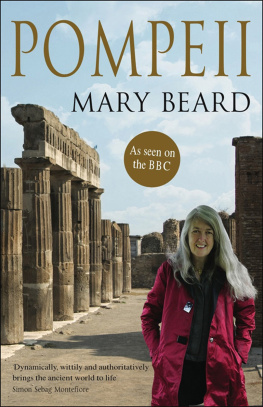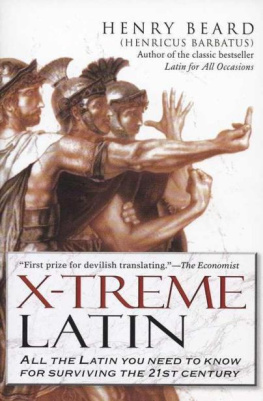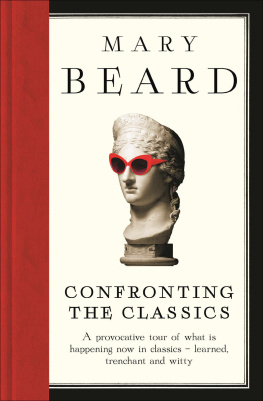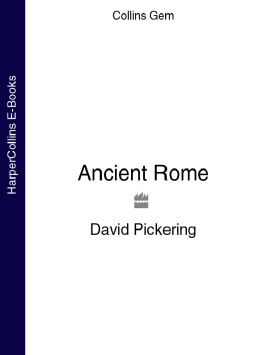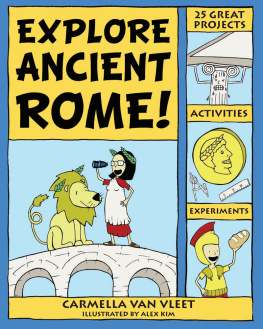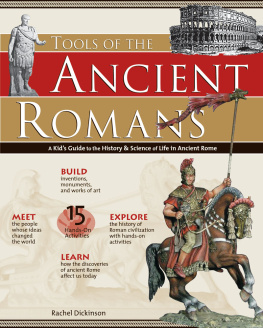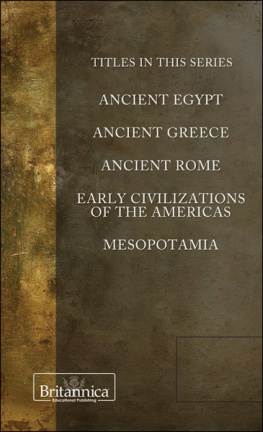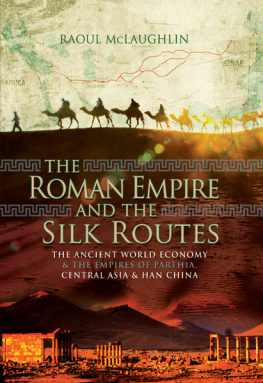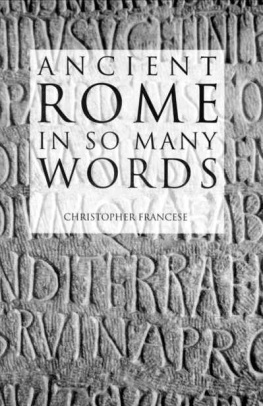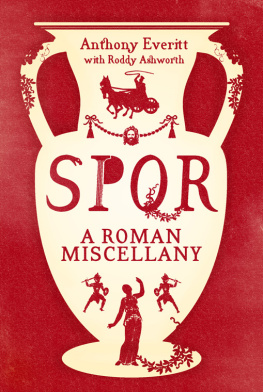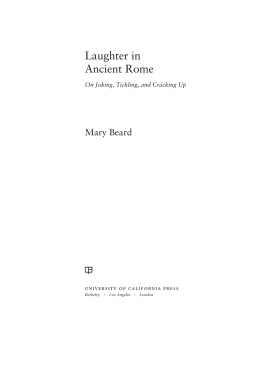Preface
When I gave the Sather Lectures at Berkeley in the fall of 2008, I had the time of my life. I hope that this book captures some of the fun we all had then in thinking about what made the ancient Romans laughhow, when, and why Romans cracked up (or said they did).
Laughter in Ancient Rome remains, in part, very close to the lectures as they were delivered, but in part it is very different. Each lecture focused on particular aspects of Roman laughterfrom the jokes of the emperor through the monkey business of the stage to the sometimes learned (and sometimes silly) speculation of Roman intellectuals on why people laugh when they are tickled. I tried to weave discussion of theory and method into the fabric of these case studiesand to continue it late at night in Berkeleys welcoming bars and cafs.
The explorations in part 2 are still recognizably (I hope) based on the lectures I gave. Those late-night discussions, however, have been adapted into a series of new chapters, which form part 1. Here I face directly some of the big questions that hover over any history of laughterand of Roman laughter in particular. Can we ever know how, or why, people in the past laughed? What difference does it make that we barely can explain why we ourselves laugh? Is there such a thing as Roman (as distinct from, say, Greek) laughter? I imagine that most readers will start with part 1 and move on to part 2, but it is not forbidden to start by dipping into part 2 and then move back to the more generaland wide-rangingstudies in part 1.
I am trying to get under the skin of laughter at Rome. This book is not a comprehensive survey of Roman laughter (indeed I am not sure what any such survey would look like, still less that it would be feasible, interesting, or useful to produce). Instead, it is intended to be a series of encounters withto borrow the Russian poet Velimir Khlebnikovs memorable termthe laughterhood of Rome: the jokers and jesters, the gigglers and chortlers, the theorizers and moralizers. It will put center stage some of the less appreciated byways of ancient literature (from the Philogelos, the Roman jokebook, to Macrobius learned and witty treatise Saturnalia ), and it will try to shed new light on Roman culture and some of its bestknown classicsVirgils Eclogues and Apuleius unsettling novel, The Golden Ass, to name but twoby looking through the lens of laughter.
Inevitably, Laughter in Ancient Rome reflects my own interests and expertise as a social and cultural historian. I am focusing on laughter as a shifting and adaptable cultural form, whatever its human physiological roots. I do not pretend to be a neurologist, and (as several footnotes will make clear) I remain far from convinced that neuroscience is much of a help in understanding the cultural and historical variability of laughter. My focus is also, as the title blazons, on the culture of Rome rather than of Greece. But, as we shall see, classical antiquity is not easy to divide into two neat halves, one Greek, one Roman, so I am constantly in dialogue with Stephen Halliwells great book Greek Laughter (2008)which I explicitly reference only to indicate disagreement or to highlight discussions particularly relevant to my argument. I have also remained fairly resolutely pagan in my focus, for which I apologize to those who would like more on the rich Jewish and early Christian debates about laughter.
My aim is to make the subject of Roman laughter a bit more complicated, indeed a bit messier, rather than to tidy it up. I have little patience with approaches that think they can explain and control the slippery phenomenon of laughter. To be honest, I am getting fed up with being told that laughter is all about power (true, but what cultural form isnt?) or that it is prompted by incongruity (sometimes, to be sure, it is, but the hilarity of satire or slapstick is not easily explained that way). This book is a reply to some of those oversimplifications and a long-considered provocationreminding us of the puzzling centrality of laughter at Rome and challenging us to think about Roman culture a little differently through laughter.
We start from two occasions in Rome when laughter was explicitly written into the ancient script: an encounter in the Colosseum, and a joke on the comic stage.
CHAPTER 1
Introducing Roman Laughter
Dios Giggle and Gnathos Two Laughs
COLOSSEUM, 192 CE
In 192 CE, a young Roman senator sitting in the front row of a show at the Colosseum in Rome could hardly restrain his laughter at what he saw. It was not a good moment to be caught laughing.
The emperor Commodus himself was hosting the spectacles, to a presumably packed crowd of some fifty thousand peoplesenators, as was the rule, in the ringside seats with the best view, while the women and slaves were squashed at the very back, high up and hardly able to see the bloody conflicts playing out more than a hundred feet beneath them in the arena. It could be that, for this particular show, some people had decided to stay away, for the story had got around that the emperorthe star of the spectacle, as well as its hostwas intending to dress up as Hercules and fire deadly arrows into the audience. Perhaps this was one of those occasions when it was safer to be a slave (or female) and in the back row.

